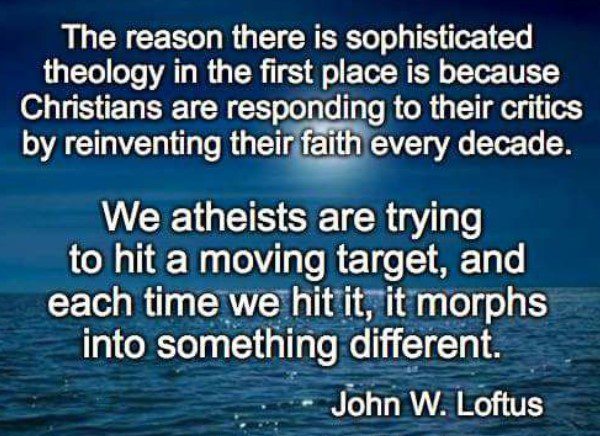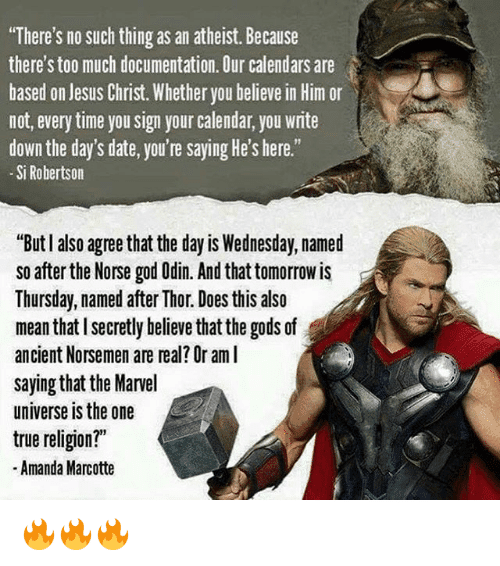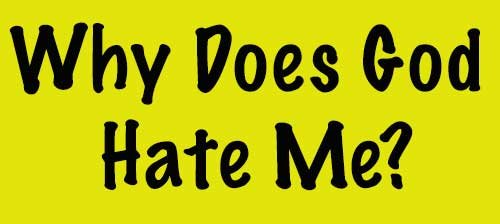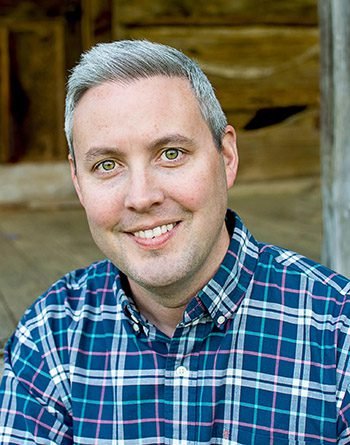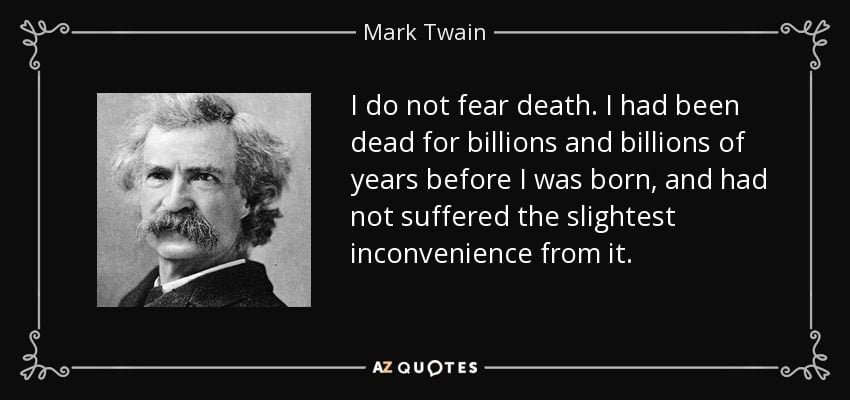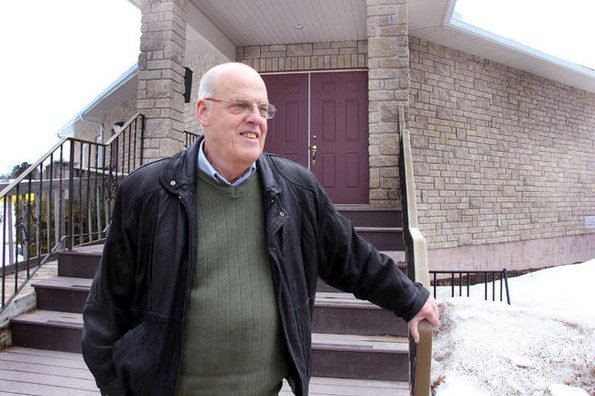
Repost from 2015. Edited, updated, and corrected.
Several years ago, Eric Strachan, retired pastor of New Life Community Church, Petawawa, Ontario, Canada, wrote an article for The Pembroke Daily Observer titled How Come Some Don’t Believe There is a God? Strachan decided to answer the question of why some of us don’t believe in the Christian God. And, like most Evangelical pastors who take up this question, Strachan gave the wrong answer. Here’s what he had to say:
Tell me, what do the following have in common – renowned feminist Gloria Steinem, film maker Woody Allen, billionaire Warren Buffet, Canadian environmentalist David Suzuki, martial arts expert Bruce Lee, Facebook founder Mark Zuckerburg and last but not least Rolling Stones front man Mick Jagger?
Scratching your head? Stumped? Let me give you a hint by adding to that list Jim Gibson, the mayor of Head, Clara and Maria who sits on the Renfrew County council. If it didn’t click before, now it has. All of the foregoing lay claim to being atheists. That means they’re not theists. A ‘theist’ is one who believes in God, but put an ‘a’ in front of that six-lettered word and you come up with what the Merriam-Webster dictionary defines as ‘one who denies the existence of God’. That’s an atheist! And let’s face it, whereby in another era many atheists kept their personal denial of God’s existence somewhat private, today, in this post-Christian age they’re out of the closet and not just out of the closet, but preaching their unbelief with unashamed evangelical fervour.
Take for instance Ronald Reagan Jr., the son of the one-time Christian president of the United States of America, Ronald Reagan. Junior is now part of the ‘Freedom from Religion Foundation’ that bemoans the intrusion of religion into the political sphere. In a series of television ads Reagan advocates for the complete separation of church and state, finishing the brief ad looking straight into the viewer’s eyes with the bold pronouncement, “Ron Reagan, lifelong atheist, not afraid of burning in Hell.” That’s bold isn’t it? I mean, really bold! But there is a brash radical boldness about today’s atheism, just listen to some of the front runners of the movement, Sam Harris and Richard Dawkins, they are preaching their ideology brother, and there’s an enthusiastic chorus of atheistic ‘Amens’ coming from all corners of the globe!
I don’t know about you, but a few weeks ago I stood in the Maternity Ward of our local hospital and looked at a pair of newborn twins, and then the other day I held them. It was an awesome moment for me, I was in absolute awe, strangely and mutely silenced as I touched tiny fingers, beheld tiny eyes, felt skin as soft as velvet and pondered to think that what I now held in my arms, these beautiful babies, had their mysterious beginnings in a microscopic cell. Who, I ask you, but a Supreme Omnipotent Creator could engineer such a marvel? You simply cannot look into the face of a newborn and declare “There is no God!”
But all that asides, I’ve discovered throughout the years that there are many reasons why many men and women today align themselves with people like Mark Zuckerburg and Ron Reagan Jr. I think there are many people who are atheists today because they’ve experienced human tragedy, painful traumatic events in their lives, wars, rapes, a dysfunctional childhood, abuse, the tragic loss of a loved one and they’ve simply not been able to come to a satisfactory answer to the perennial perplexing question, “If there is a loving, all-powerful God, then why would He allow this to happen to me?”
Outside of their own personal traumas, many embrace atheism today because they read of the Jewish Holocaust, see and witness human tragedies on a widespread scale, famines, genocides, ethnic cleansings and they ask themselves despairingly, “If there is a God, why would He allow such atrocities?” Together with that, there are many who fly under the banner of atheism today because at some memorable junction in their lives they have been desperately hurt, wounded and scarred by someone who professed to be a believer. Tragically the messenger has discredited the message by his/her inappropriate behaviour and the wounded one has committed the classic error that all of us are inclined to do, of throwing out the baby with the bathwater!
Personally, I would love to sit down with guys like Woody Allen or Mark Zuckerburg and Mayor Jim Gibson. I would love to ask them “Why are you an atheist?” And then I would love to sit and listen, without interruption or defence on my part, them tell me why. I would venture to say that some of them would come up with some very strong intellectual arguments as to why they reject God, but I’m also absolutely convinced that many of them would tell me that they have embraced the belief system of atheism because they’ve been wounded by professed believers, or they’ve seen too much hypocrisy in the ranks of those who believe.
As a theist and a Christian, I’d love to ask any of them what they think of Jesus Christ. I’d furthermore like to invite their responses to the question, “What do you think of the comments made by historian after historian down through the generations that this man Jesus Christ is the most important man who ever lived?”
I wonder what they’d say. I wonder what Gloria would say, and I wonder what Woody, Warren and Bruce would say. And I guess for that matter, I wonder, I really wonder, what Jim Gibson, the mayor who sits on the Renfrew County Council would say. It would be interesting to know, wouldn’t it? For let’s face it, if you forthrightly profess to be an atheist, deep down, at least according to you . . . there’s a substantial reason why!
Strachan did wonder what Bruce would say – not me, of course – so I thought I would tell him.
Strachan, like many Evangelical pastors and apologists, refuses to accept at face value the stories atheists tell about their deconversion. While he paints himself as a man willing to listen, he knows what their real problem is; they were hurt and they need Jesus; or they couldn’t reconcile the evil in the world with there being any God, let alone the Christian God. In one short post, Strachan gives all the reasons Christians say people such as myself and many of the readers of this blog are atheists. All the reasons except one, that is. While many atheists certainly struggled with some or all of the issues mentioned by Strachan, the primary reason for their deconversion was an intellectual one.
Strachan seems to not know that many atheists were at one time devout Christians. It’s not that we don’t understand the teachings of Christianity. We do, and we find them wanting.
Here’s what’s offensive about Strachan’s line of reasoning. He refuses to allow atheists to tell their own stories. He wants to rewrite their storylines, making them fit his understanding of faith and unbelief. Imagine if atheists treated Christians the same way. Imagine if atheists refused to accept at face value Christian conversion stories. Why, Christians would be incensed over our refusal to accept their narratives at face value.
Imagine a discussion between Pastor Eric Strachan and Bruce Almighty, the Atheist:
Strachan: I am a Christian.
Atheist: Why are you a Christian?
Strachan: I realized I was a sinner and I needed my sins forgiven. I realized Jesus died on the cross for my sin. Jesus offered me salvation and deliverance from sin if I would put my faith in him. I did, and I have been a Christian for over sixty years.
Atheist: Yeah, but why are you REALLY a Christian?
Strachan: I told you.
Atheist: No, I want to know the REAL reason you are a Christian.
Strachan: I told you, don’t you believe me?
Atheist: Well, I just know there must be some other reason you are a Christian.
Strachan: Uh . . .
Atheist: What aren’t you telling me?
Strachan: Well . . .
Atheist: Did you become a Christian so you could be a pastor?
Strachan: I told you the reason I became a Christian. Why don’t you believe me?
Bruce, the atheist, and Strachan go back and forth until Strachan realizes the atheist refuses to accept his story at face value, and nothing is going to change his mind. Strachan hands the atheist a tract, promises to pray for him, and sadly walks away.
The next week, the atheist writes an article for The Pembroke Daily Observer about the REAL reason Eric Strachan became a Christian.
I wonder how Strachan would feel?
Strachan makes a plea for civility, discussion, and understanding. However, such understanding only comes when we treat others with respect and allow them to tell their own stories. Both Christians and atheists should have the freedom to control their storylines, to explain how they came to where they are today. When Christians tell me why they became followers of Jesus, I believe them. I’ve been there, and I understand what it means to commit one’s life to Jesus. I also understand what it means to lose one’s faith, to wake up one day and realize you no longer believe in God. Since these experiences are mine, who better to understand them than me?
If Christians such as Eric Strachan really want to understand WHY atheism, agnosticism, secularism, and religious indifference are growing in North America, they are going to have to listen to what defectors have to say. Throw away the apologetics books that purport to give the REAL reasons people turn to atheism. These books are filled with distortions and lies. Who better to answer the WHY question than atheists?
Bruce Gerencser, 66, lives in rural Northwest Ohio with his wife of 45 years. He and his wife have six grown children and thirteen grandchildren. Bruce pastored Evangelical churches for twenty-five years in Ohio, Texas, and Michigan. Bruce left the ministry in 2005, and in 2008 he left Christianity. Bruce is now a humanist and an atheist.
Connect with me on social media:
Your comments are welcome and appreciated. All first-time comments are moderated. Please read the commenting rules before commenting.
You can email Bruce via the Contact Form.

